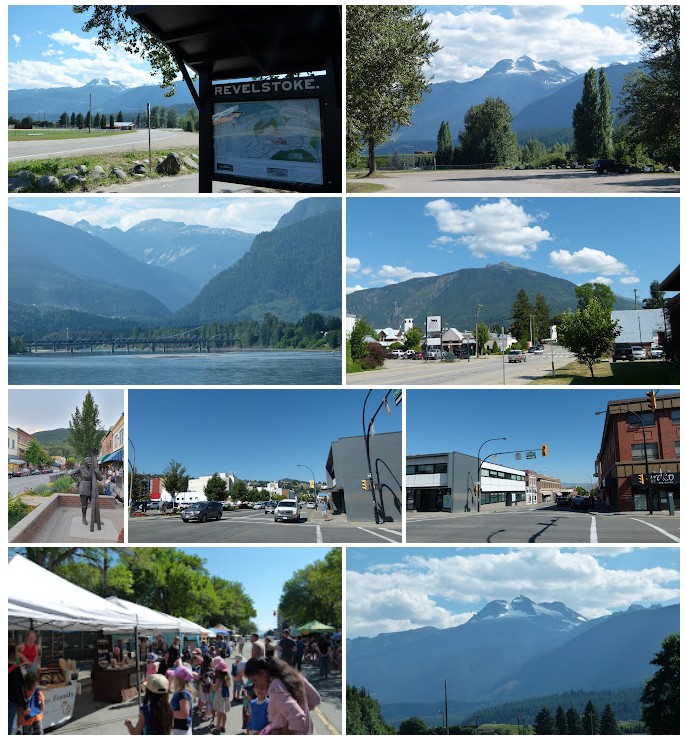Our first overnight stop was at the ski-resort town of Kamloops.

Kamloops has a couple of pubs, one of which seemed a possible solution for an inexpensive meal. It was a Canadian version of an Australian outback pub, complete with local workers and 'characters'.
The restaurant at the hotel was closed, so we walked around town and checked-out the restaurants. The Pub looked better and better. Maybe the ciders were beaconing? In the end it was a good night.
Our next overnight stop would be Revelstoke.
Again, we walked, past the RCMP (Mounties) station, to the river and the more intimate vistas to be see there. There is an unmistakable similarity to the scenery in the Netflix soapy Virgin River. This is not surprising, as the series, that is supposed to take place in a remote 'Northern California' town, is actually shot, not far away from here, in Canada.
The following morning there was a local market set-up in the street, next to our hotel, that elicited a quick look.
After breakfast we set off again, to collect our friends Brian and Kat, an hour late as we had not realised that it's a new time zone, and then on to Banff where we needed to call in to Hertz to get Brian registered as a co-driver for the car.
Brian's less likely to forget which side of the road to drive on, as they live in California. Actually, I've more often forgotten in Australia, after returning from driving oversees. Less attention paid at home.
